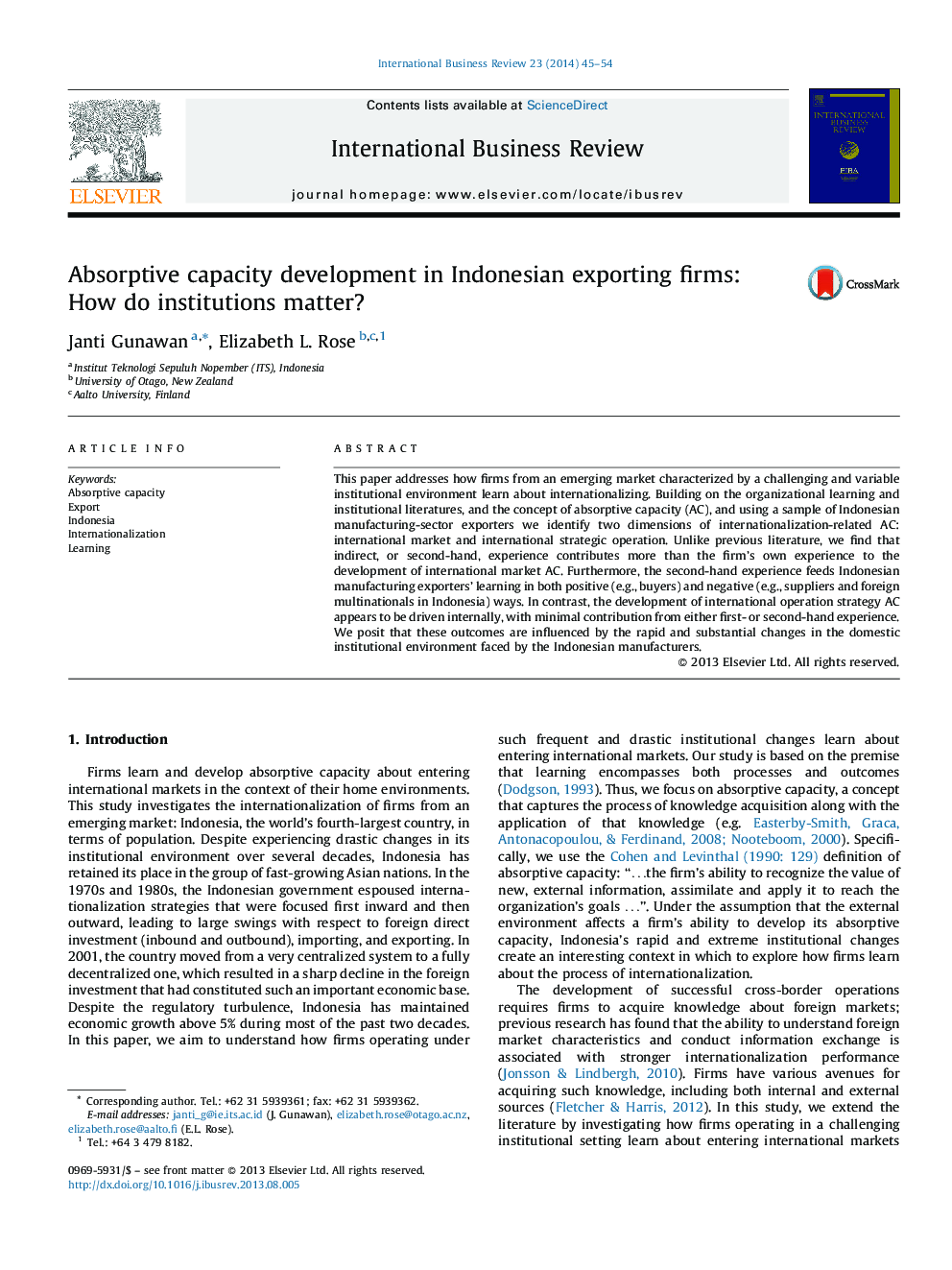| Article ID | Journal | Published Year | Pages | File Type |
|---|---|---|---|---|
| 1001304 | International Business Review | 2014 | 10 Pages |
This paper addresses how firms from an emerging market characterized by a challenging and variable institutional environment learn about internationalizing. Building on the organizational learning and institutional literatures, and the concept of absorptive capacity (AC), and using a sample of Indonesian manufacturing-sector exporters we identify two dimensions of internationalization-related AC: international market and international strategic operation. Unlike previous literature, we find that indirect, or second-hand, experience contributes more than the firm's own experience to the development of international market AC. Furthermore, the second-hand experience feeds Indonesian manufacturing exporters’ learning in both positive (e.g., buyers) and negative (e.g., suppliers and foreign multinationals in Indonesia) ways. In contrast, the development of international operation strategy AC appears to be driven internally, with minimal contribution from either first- or second-hand experience. We posit that these outcomes are influenced by the rapid and substantial changes in the domestic institutional environment faced by the Indonesian manufacturers.
